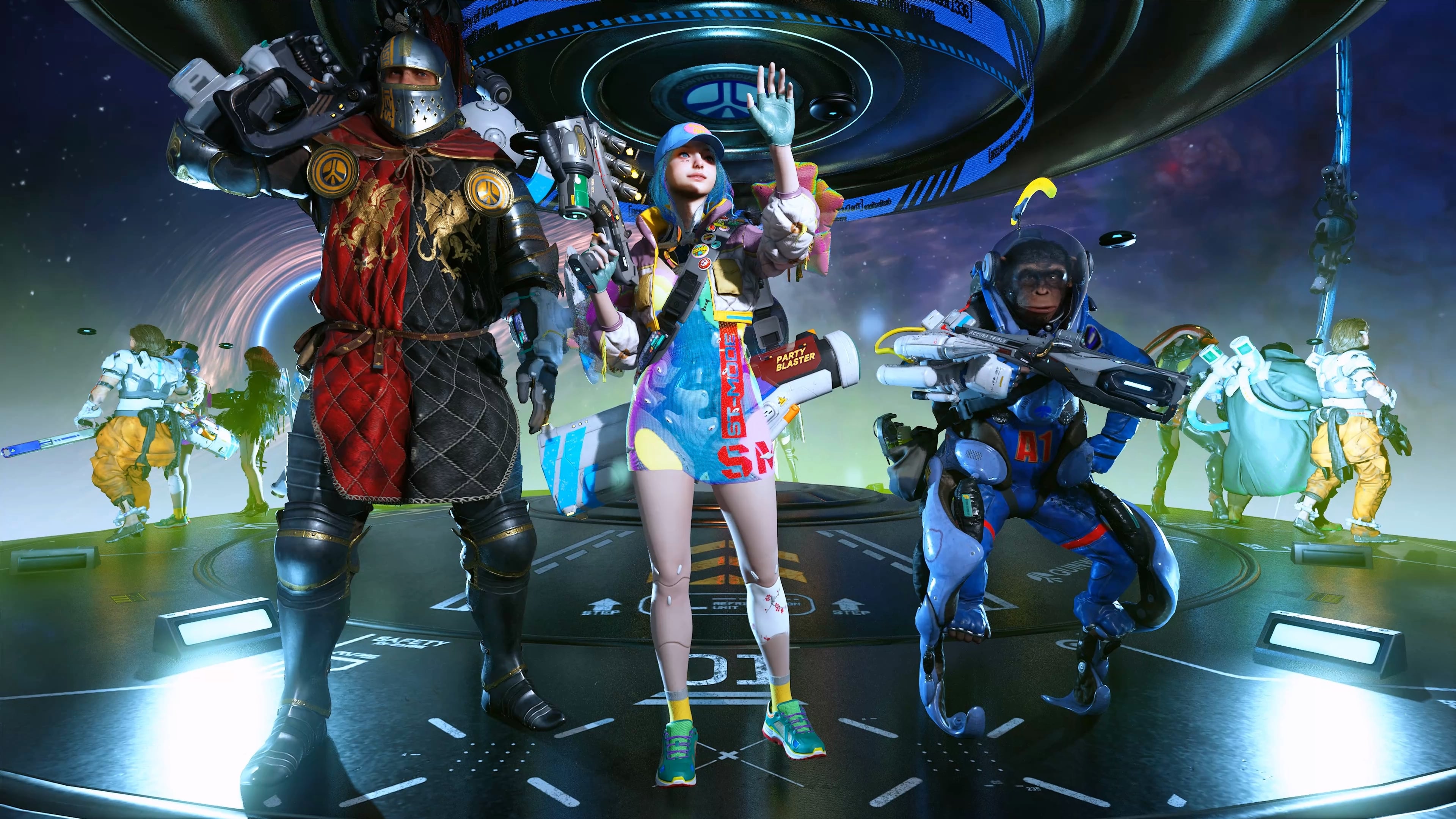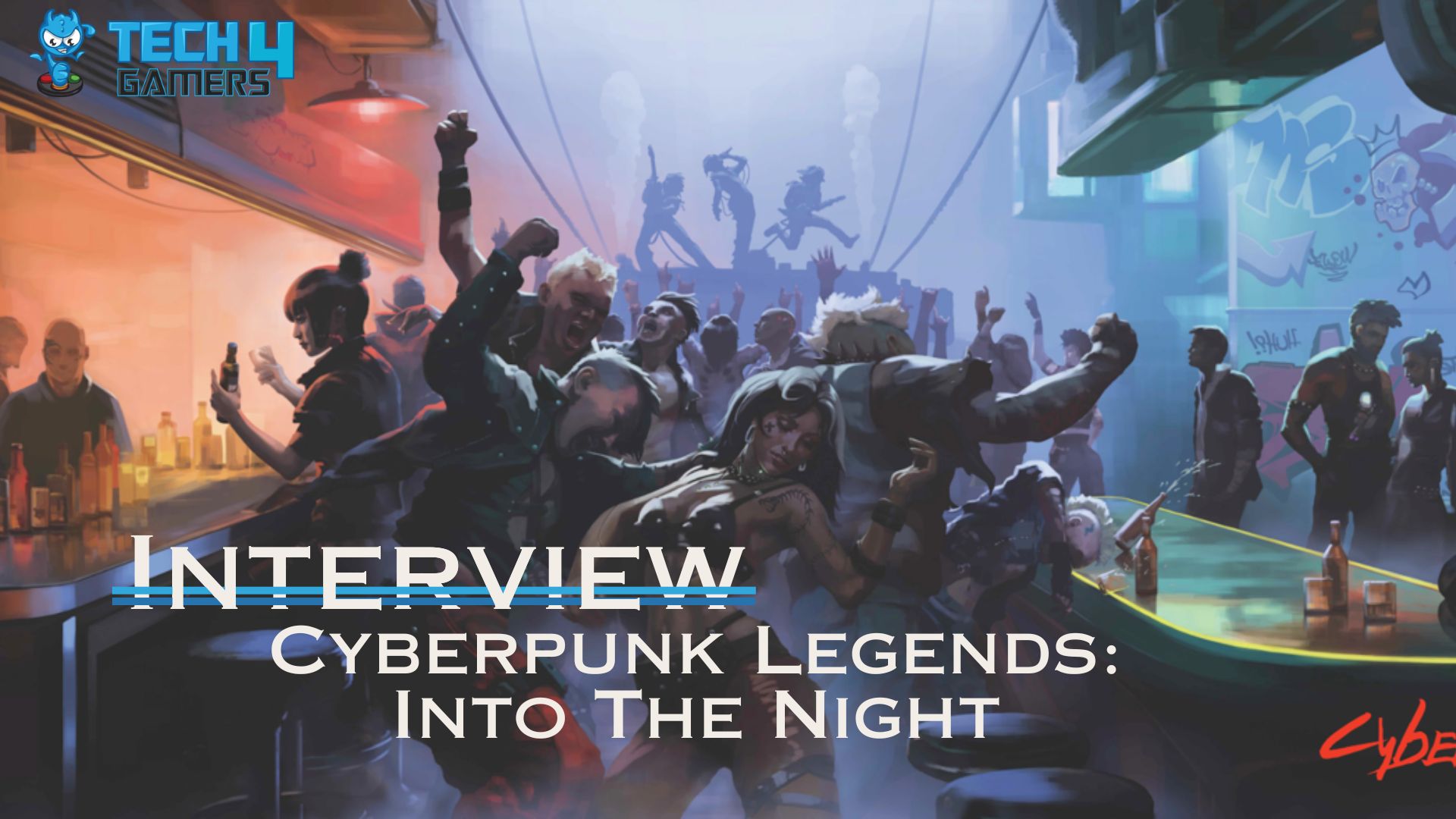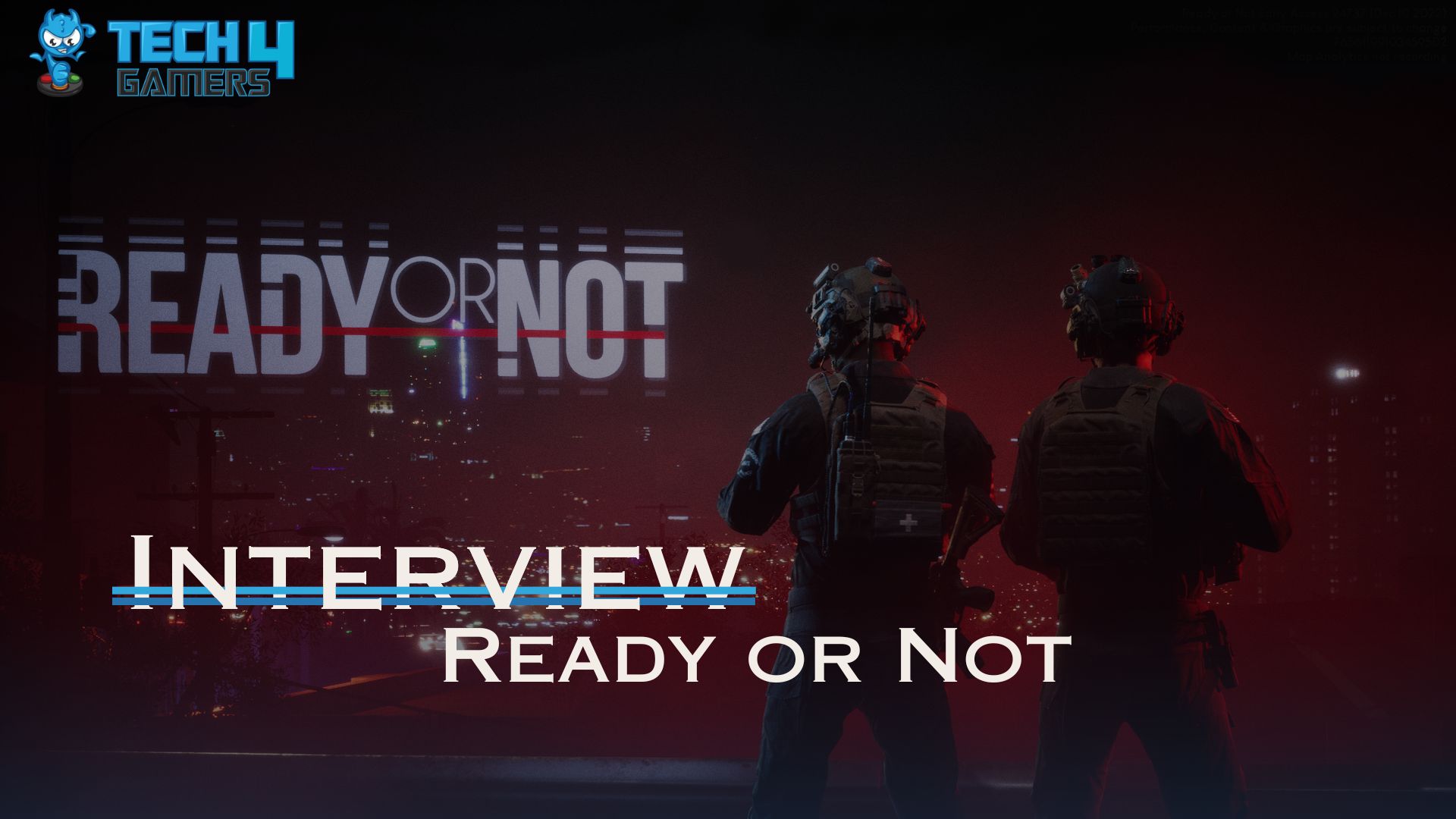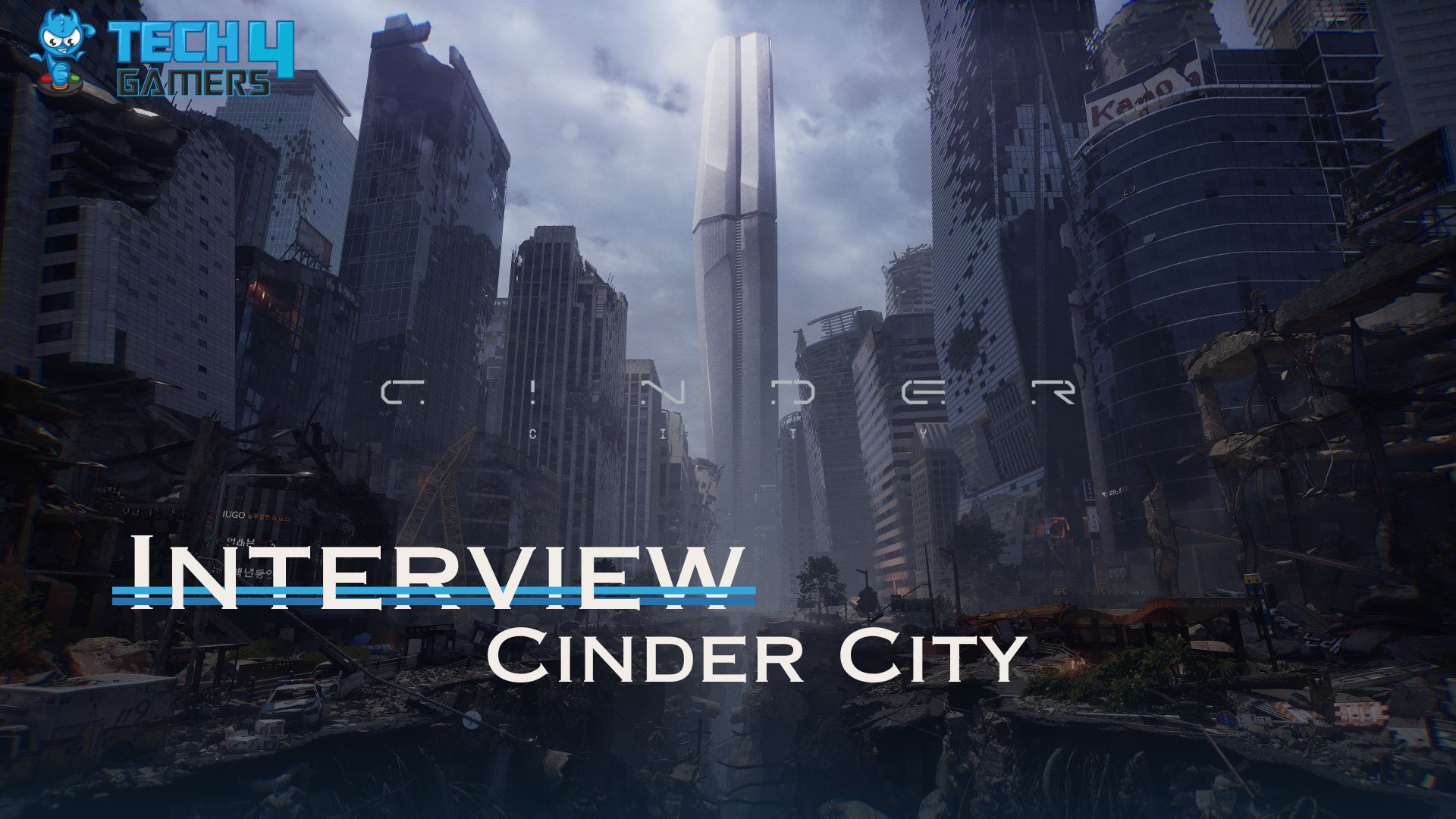- The main feature of Time Takers is using time as a resource that constantly runs out. Players must actively gather more time to survive, which discourages camping and forces them to take action.
- The game is scheduled to launch globally in 2026. The team is focused on quality and will not rush the release for an earlier date.
- The developer, Mistil Games, has creative control over the game. The publisher, NCSOFT, offers support with market data and global insights.
We recently caught up with YongMin Jo, the CEO of Mistil Games and the mind behind Time Takers, to chat about their upcoming third-person shooter. Time Takers isn’t your usual run-and-gun game. Here, time itself is the big deal.
Every second matters, and how you use it could decide whether you win or lose. It’s all about mixing quick reflexes with smart strategy, and that twist makes it feel way different from the shooters we’re used to.
During our interview, YongMin shared how the “time as a resource” system works, what it’s like to build a game as a smaller studio, and how NCSOFT is helping to push things forward. We also dug into the team’s inspirations, how they plan to keep the game fresh after launch, and their approach to making free-to-play fair for everyone.
With a global launch set for 2026, Time Takers is shaping up to be one of the more exciting hero-shooters to watch.

YongMin Jo: Time itself is both your resource and your lifeline. Because your time is constantly ticking down, simply staying in a safe spot won’t work — you have to take risks and venture out to secure Time Energy. Every moment is filled with tension as you’re forced to decide —’Do I move now, or hold out a bit longer?’ Those dramatic reversals — stealing time from an enemy or grabbing a last-second bonus — create a kind of excitement rarely found in third-person shooters. This pressure naturally amplifies teamwork and communication, and even spectators can feel the thrill by instantly seeing the remaining time and the state of the match.
YongMin Jo: In the game, time is the ultimate resource deciding survival or elimination, with health exists separately. When a player’s health is fully depleted, they enter a respawn timer during which their time continues to drain. Because they can’t collect Time Energy while waiting to respawn, this serves as a powerful penalty.
As a result, our game doesn’t knock players out immediately after a single death like typical battle royales do. This mechanic is designed to ease that feeling of sudden loss and keep players engaged.
YongMin Jo: NCSOFT deeply agrees with our view that developers know their games best and should be able to shape them according to their own vision. At the same time, as a publishing, NCSOFT continuously provides valuable insights on market conditions and global player needs, helping us maintain a balanced perspective throughout development.
Rather than intervening unilaterally, we work together in a close partnership that complements each other’s strengths. Thanks to this approach, Time Takers is able to preserve its originality while achieving a level of polish that can compete on the global stage.
YongMin Jo: Development of Time Takers is on track with our planned milestones. While we remain flexible to adjust details in response to market shifts or changing player expectations, our focus is on ensuring quality rather than accelerating the timeline. Together with NCSOFT, we’re committed to launching only when both sides agree the game meets the highest standards at the most strategic moment.
Even so, a global launch in 2026 is firmly set. We’re eager to bring the game to players and prove its competitiveness, and we’re preparing thoroughly on both the development and publishing fronts to make that happen.
YongMin Jo: For now, players will be able to earn various rewards by accumulating time. As their characters grow, they’ll naturally uncover the world’s story and each character’s narrative within the game itself— through a feature called ‘Memory’— rather than through an external website.
We want players to experience firsthand why these characters have come together and what stories lie behind each of them. Looking ahead, we’re exploring ways to expand and present this content in even more engaging ways.
YongMin Jo: We are aware that a lot of people expressed concern about this. It’s intimidating for a small studio like us to step into a genre where even big companies have struggled. But, we’re confident that Time Takers isn’t simply copying what’s already out there — it offers its own unique kind of fun.
Above all, we believe that if the game is truly fun, players will naturally love it. That support will let us keep expanding and evolving the game so it can thrive for years to come.
YongMin Jo: Mistil Games is a small studio, founded about two and a half years ago, and we’ve faced inevitable constraints in capital, scale, and time when it comes to gradually implementing various visual and optimization technologies.
However, by proactively adopting Unreal Engine 5, we’ve been able to overcome many of these limitations and significantly improve our development efficiency. Of course, as with any open engine, there are potential security vulnerabilities, and we’re actively working on measures to minimize them.
YongMin Jo: One of Time Takers’ greatest strengths lies in offering a fresh, rule-driven gameplay. Choosing Free-to-Play model was mainly about making this experience as accessible as possible for players. We have also put a lot of effort into ensuring that our unique time-collecting systems are fun in themselves, ultimately creating a game that delivers a deep sense of accomplishment.
Above all, fairness is our top priority. We believe that the fun and sense of accomplishment players feel should come from skill and strategy, not from how much they spend. That’s why we have excluded Pay-to-Win elements from Time Takers completely. We will not introduce anything that disrupts game balance or allows certain paying players to gain an advantage. Instead, monetization serves purely as a way to enhance the experience. At the core are cosmetic features—character outfits, weapon skins, witty emotes, and in-session decorations—that strengthen a character’s appeal and let players express themselves. Our goal is to go beyond just dressing up, giving everyone a chance to show their individuality and feel more immersed in the world.
The specific details of our business model have not been finalized yet. However, we are committed to carefullyto reflecting global market trends and what players actually want, aiming to create a system that encourages players’ voluntary engagement rather than just generating profit.
YongMin Jo: When developing Time Takers, we carefully studied changes in game trends from a broad, player’s perspective to shape our approach. When MMORPGs dominated online gaming, their grand scale and epic narratives were key strengths. But, for players who preferred a more concise experience, games like League of Legends or Dota, which pack excitement into shorter, intense sessions, became mainstream.
Over time, as players grew weary of the constant stress from wins, losses, and community expectations, it led players to seek experiences with lighter stakes. This shift helped Battle Royale emerge as a new trend, where luck plays a significant role and communities can be more positive and casual.
As the Battle Royale trend continued, we paid close attention to the sense of emptiness in the gameplay that started to surface. Evidence of this can be seen in some players returning to AOS games, creating a split in the market.
We wanted to address the emptiness players sometimes feel in Battle Royale, while bringing in the thrill of character fights and AOS games. Recognizing that traditional shooters often emphasize technical skill to a degree that some players find discouraging, we decided to design a fast-paced game that suits modern players, targeting those who want to enjoy shooter gameplay without being limited by physical skill requirements.
Time Takers isn’t just about blending different genres. Rather, we looked at the emotional experiences each genre brings to players and focused on retaining and enhancing only those emotions most relevant and resonate with today’s players.
Regarding AOS elements: Drawing inspiration from AOS games, we designed a progressive character growth system that allows players to succeed not only through the reflex-based skills typical of tactical shooters, but also through a variety of gameplay abilities, such as map navigation or securing advantageous positions.
YongMin Jo: We experimented with a first-person view during development, but the fast pace and frequent close-quarters combat in Time Takers significantly caused more motion sickness and fatigue. For this reason, we opted for a third-person perspective, which gives players better visibility and situational awareness, fitting the game’s pace while keeping it comfortable. While third-person can make it easier to spot opponents behind cover, Time Takers constantly depletes players’ time; as such, hiding isn’t a viable strategy. This way, the drawbacks are naturally balanced, and the benefits help define Time Takers’ uniqueness.
YongMin Jo: We fully recognize the importance of the console market. To offer the best possible experience for a global audience, Time Takers needs to be accessible across platforms. From the early stages of development, we have considered console-specific gameplay elements like UI and key mapping alongside PC.
We’re also planning to support cross-play from launch, though this depends on discussions with various platform providers. While we can’t confirm it yet, we’re doing everything we can to make sure players can enjoy the game as they wish.
YongMin Jo: Our game is designed to demand less reflex skill than traditional tactical shooters. For spectators, though, the variety of strategies and dynamic shifts in gameplay, combined with better situational awareness in short sessions and less motion sickness compared to FPS games, make it fairly e-sports friendly.
Still, e-sports wasn’t our primary goal. Right now, our focus is first on creating a game that players genuinely enjoy. If, along the way, competitive players naturally emerge who wish to compete professionally and the foundation for such a competitive stage is established, that’s when we’ll start thinking seriously about e-sports.
Talking with YongMin Jo showed us that Time Takers isn’t just another hero-shooter. The whole idea of using time as your lifeline sounds intense in the best way, and it’s exciting to see a studio trying something new instead of following the same old formulas.
It feels like the kind of system that could make every match unpredictable, fun to play, and even fun to watch.
What really stood out was Mistil Games’ confidence as a small team. They know it’s tough to step into a space where even big publishers struggle, but they’re putting their focus on originality and fair play.
No pay-to-win tricks, no cheap shortcuts, just a game that succeeds if it’s genuinely fun. That’s a bold move, and it’s exactly the kind of approach more free-to-play shooters should take.
There’s still plenty we don’t know yet, like how cosmetics will work, whether cross-play will be included, and how the “Memory” system will tie into the story. With a 2026 release already on the calendar, we’ll be keeping a close eye on how Mistil Games brings this ambitious idea to life.
Big thanks to YongMin Jo for sharing his time and vision. We’ll definitely be watching as Time Takers gets closer to launch.
Thank you! Please share your positive feedback. 🔋
How could we improve this post? Please Help us. 😔
Passionate gamer and content creator with vast knowledge of video games, and I enjoy writing content about them. My creativity and ability to think outside the box allow me to approach gaming uniquely. With my dedication to gaming and content creation, I’m constantly exploring new ways to share my passion with others.




